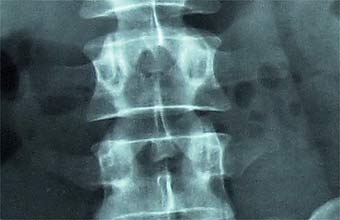
back
Support Global Action on
Aging!

|
 |
Chiropractic
manipulation in elderly “raises stroke risk”
By Health Newswire reporters
HMG Worldwide, May 14, 2003
LONDON - Neck
and spine adjustments by chiropractors and other practitioners can
increase the risk of stroke, says US research, although the profession in
the UK challenges the study.
Photo Matthew Munro - Health Media Ltd

Experts divided over chiropractic benefits
The researchers
found that people under the age of 60 who had strokes or mini-strokes as a
consequence of tears in their neck arteries were six times more likely to
have visited a practitioner who had manipulated their neck within the past
month than those who had strokes due to other causes.
The team from the University of California, San Francisco (UCSF),
identified a group of people under the age of 60, including 51 people with
stroke caused by arterial dissection and 100 people with strokes from
other causes.
In a dissection, the tear in the artery allows blood to enter the wall of
the artery, causing the formation of either a blood clot or an aneurysm,
which can disrupt blood flow to the brain.
Seven people with dissection had cervical spine manipulation before the
stroke or mini-stroke, compared to three people without dissection, say
the authors in the journal Neurology.
And for those with dissection, the stroke occurred an average of 1.4 days
after the manipulation, compared to 8.4 days for those without dissection.
In addition, the study found that 57 per cent of the patients with
dissections said their head or neck pain increased after the manipulation.
Dr Wade Smith, study author and a neurologist from UCSF, warns that it is
essential that people who experience increased pain after manipulation
seek a medical evaluation immediately.
“It is possible that they could have a dissection and be at risk for
stroke,” he says.
However, in an accompanying editorial, neurologist Dr Linda Williams says
that the study does not provide a precise estimate of the risk of stroke
after neck manipulation.
But she adds, “The main issue is that the benefit of manipulation
therapy has not been demonstrated by scientific studies.”
The UK’s regulatory body, the General Chiropractic Council, however,
said that it was “nonsensical and irrational” to single out the
chiropractic profession, as many other practitioners use manual therapy
for neck pain.
The spokesperson added that the study provides no evidence that manual
manipulation is a cause of stroke and questioned its validity on the basis
of the number of subjects involved.
Copyright
© 2002 Global Action on Aging
Terms of Use | Privacy
Policy | Contact Us
|



